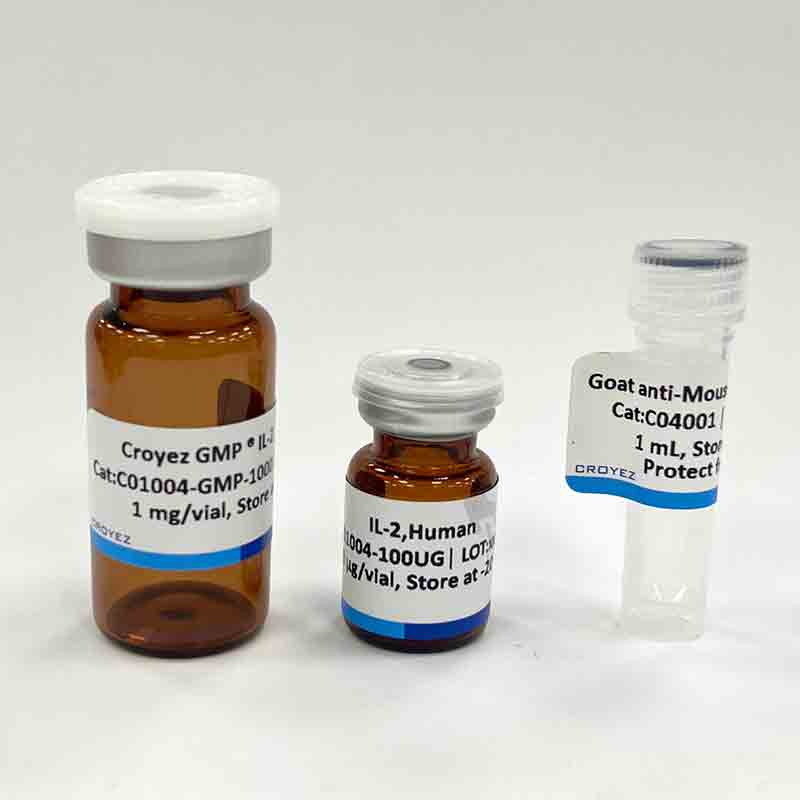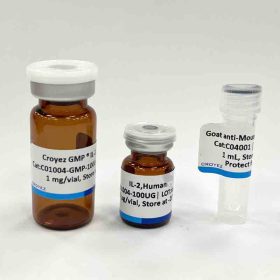TL-1A belongs to the TNF superfamily of ligands. It is specially expressed in endothelial cells, and is detected in the placenta, lung, kidney, skeletal muscle, pancreas, small intestine and colon. TL-1A inhibits endothelial cell proliferation and angiogenesis. It has been proved to promote NF-κB activation, caspase activity, and apoptosis in responding cell lines. TL-1Acan bind with TNFRSF25/DR3 receptor and a decoy receptor TNFRSF21/DR6.
Sequence:
MQLRAQGEASVQFQALKGQEFAPSHQQVYAPLRADGDKPRAHLTVVRQTPTQHFKNQFPALHWEHELGLAFTKNRMNYTNKFLLIPESG
DYFIYSQVTFRGMTSECSEIRQAGRPNKPDSITVVITKVTDSYPEPTQLLMGTKSVCEVGSNWFQPIYLGAMFSLQEGDKLMVNVSDISLVDY
TKEDKTFFGAFLL with polyhistidine tag at the C-terminus
Source:
Escherichia coli
Endotoxin Test:
<0.1 EU per 1 μg of the protein by the LAL method.
Activity:
Measure by its ability to induce TF-1 cells proliferation. The ED50 for this effect is <0.2 ng/mL.
Purity:
>98% as determined by SDS-PAGE. Ni-NTA chromatography
Formulation:
The protein was lyophilized from a solution containing 1X PBS, pH 8.0.
Reconstitution:
It is recommended to reconstitute the lyophilized protein in sterile H2O to a concentration not less than 100 μg/mL and incubate the stock solution for at least 20 min to ensure sufficient re-dissolved.
Storage:
Lyophilized protein should be stored at -20°C. Upon reconstitution, protein aliquots should be stored at -20°C or -80°C.
Note:
Please use within two weeks after protein reconstitution.





